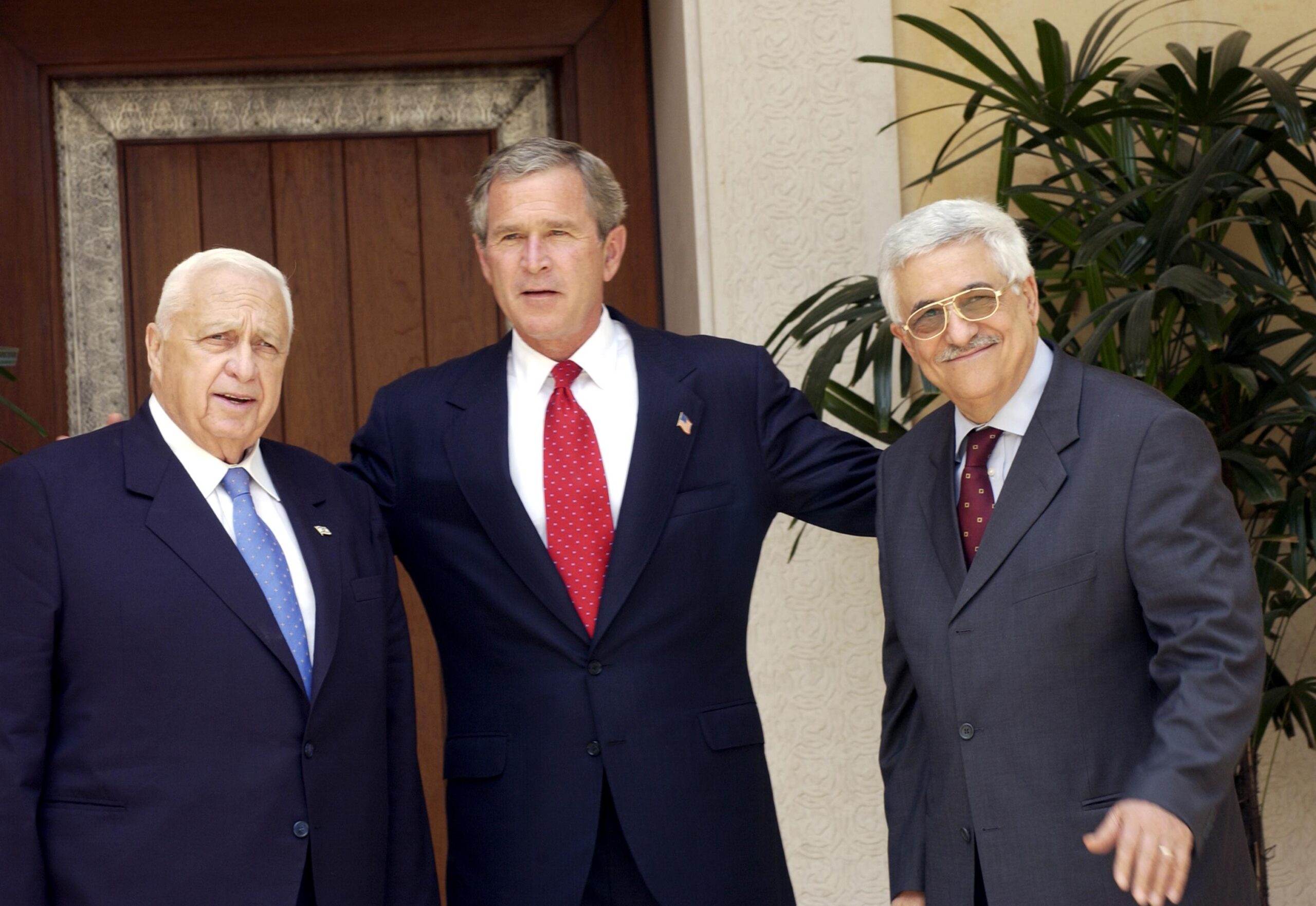
April 30, 2003
Developed by the Quartet — the United States, Russia, the European Union and the United Nations — the Roadmap for Peace is “a performance-based roadmap to a permanent two-state solution to the Israeli-Palestinian conflict.” Marking an end to his administration’s hands-off policy towards the Israeli-Palestinian conflict, President George W. Bush in a June 24, 2002, speech calls upon Israelis to withdraw from recent incursions in the West Bank and Gaza and upon the Palestinian Authority to stop supporting terrorism. In August 2002, the administration outlines its “Roadmap for Peace” policy, supporting a two-state solution. These two developments mark the genesis of this ambitious framework to resolve the Israeli-Palestinian conflict.
The plan comes about during a period of extreme violence between Israel and the Palestinians. The Second Intifada (uprising), which begins in September 2000 and goes through February 2005, claims the lives of over 1,000 Israelis and over 4,000 Palestinians. Marked by brutal suicide bombings against Israeli civilians and retaliatory Israeli incursions into Palestinian territory, the international community rallies around Bush’s initial plans to develop a comprehensive end to the out of control cycle of violence, which is hitting a historic crescendo.
The Quartet’s Roadmap for Peace, however, sparks significant reservations amongst Israeli leaders. Accordingly, they release a document outlining their fourteen main concerns about the proposal, which the US promises to “fully and seriously address.” The Israeli government notes that no negotiations could ensue unless the Palestinian terrorist networks are dissolved, all incitement against Israel ends, and a new Palestinian leadership emerges. For any security force sent to monitor unfolding negotiations, American participation would be required.
While the Palestinian Authority pledges to support the Roadmap, Hamas rejects it outright. Hamas leader Sheikh Yassin proclaims, “The road map aims to assure security for Israel at the expense of the security of our people. It is a plan to liquidate the Palestinian cause. We reject it.”
Despite numerous attempts to execute the framework outlined in the Roadmap, the Quartet is never able to succeed in implementing the plan. In the Sharm el-Sheikh Summit of 2005 and the Annapolis Conference of 2007, both Israeli and Palestinian leaders confirm their commitment to Roadmap. However, despite this progress, violence continues to foment between the warring parties and numerous attempts at establishing a two-state solution based peace deal have all failed.
